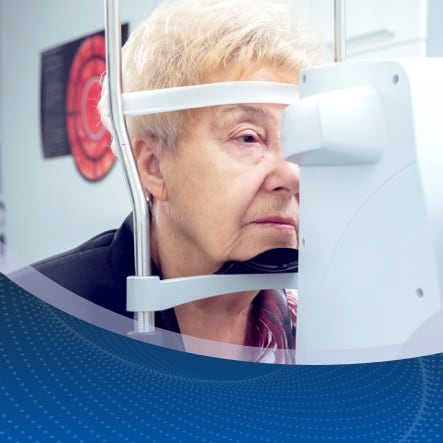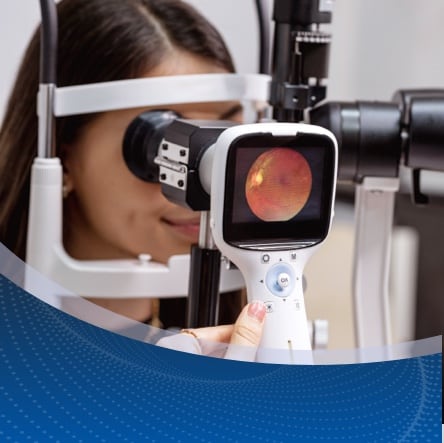As a prominent global health concern, diabetes not only impacts the body’s ability to use sugar effectively but also has noticeable effects on various organ systems—including the eyes. One commonly reported complication among diabetic patients is blurred vision, a condition primarily attributed to the detrimental impact of high blood sugar levels in the blood vessels of the eyes. Read on to uncover the intricacies of this correlation, shedding light on the cause and the potential remedies for diabetes-induced blurry vision.
About Diabetes
Diabetes is a chronic health condition characterized by the body’s inability to regulate glucose effectively. There are two major types: Type 1, an autoimmune disease where the body does not produce insulin, and Type 2, where the body either resists the effects of insulin or doesn’t produce enough to maintain normal glucose levels.
The impact of diabetes on blood sugar levels is significant. Insulin, a hormone produced by the pancreas, regulates the amount of glucose in the bloodstream. In individuals with diabetes, this regulation is impaired, leading to elevated blood sugar levels. Continually high blood sugar can wreak havoc on the body’s organ systems, including the eyes, leading to blurred vision. It is thus crucial for individuals with diabetes to manage their blood sugar levels effectively and perform regular eye exams to detect vision problems early.
Diabetes Symptoms
- Excessive thirst
- Frequent urination
- Unexplained weight loss
- Slow-healing sores
Diabetic Retinopathy: The Link Between Diabetes and Blurry Vision
High blood sugar levels caused by diabetes damage the blood vessels in the retina, the light-sensitive tissue at the back of the eye. Over time, the damaged blood vessels may leak fluid or bleed, causing the retina to swell and cause blurry vision. This condition, known as diabetic retinopathy, is the most common cause of vision loss among people with diabetes and the leading cause of vision impairment and blindness among working-age adults.
According to a study published by the National Eye Institute, nearly 7.7 million Americans ages 40 and older have diabetic retinopathy. This represents a significant (83%) increase from the 4.2 million affected in 2000. The same study found that the longer a person has diabetes, the greater their likelihood of developing diabetic retinopathy. This underscores the importance of regular eye exams for early detection and treatment of this and other serious eye conditions related to diabetes.
Diabetic Retinopathy Types and Symptoms
Diabetic retinopathy typically goes through four stages, starting with mild nonproliferative retinopathy and progressing through moderate and severe nonproliferative retinopathy, to finally proliferative diabetic retinopathy, the most severe form.
Non-proliferative diabetic retinopathy is when blood cannot reach the macula because the vessels are closed off. In retrospect, proliferative retinopathy is an advanced stage of diabetic eye disease. It occurs when the retina begins growing new blood vessels (neovascularization), which causes bleeding into the vitreous and may cause scar tissue and/or a potential detached retina.
Diabetic Retinopathy Symptoms
- Increase in eye floaters
- Blurry vision
- Poor night vision
- Color changes
- Vision loss
It’s important to note that diabetes can cause more eye problems beyond diabetic retinopathy. Diabetes can also cause diabetic macular edema, which may lead to retinal thickening caused by an accumulation of intraretinal fluid, and cataracts. It can even double your chances of getting glaucoma. Contact the Griffey Eye Care specialists for more information on diabetic eye disorders.
Can Diabetes-Induced Blurred Vision be Corrected?
The good news is that blurred vision caused by diabetes can often be corrected or managed effectively. The key to this process is the early detection and treatment of diabetic eye conditions like diabetic retinopathy, which can be achieved through regular eye examinations. Our physicians emphasize the importance of an annual diabetic eye exam for people with diabetes. Your physician will tell you what frequency of care is best for your specific diagnosis.
The first step in addressing diabetes-induced blurred vision is to bring blood sugar levels under control. This alone can often lead to an improvement in vision. However, for those with advanced diabetic retinopathy, more targeted treatments may be necessary.
Griffey Eye Care offers several treatments for managing and correcting blurred vision caused by diabetes:
- Medicated Eye Drops: In some cases, medicated eye drops may be prescribed to help reduce inflammation and swelling in the eyes.
- Injections: Certain cases may require medication injections directly into the eye to slow the progression of diabetic retinopathy.
- Laser Treatment: Also known as laser photocoagulation, this treatment involves using lasers to seal off leaking blood vessels in the eye, preventing further damage and vision loss.
- Vitrectomy: In more severe cases, a surgical procedure known as a vitrectomy may be necessary. This involves the removal of the gel-like substance in the middle of the eye, allowing for better access to the retina.
Remember, every individual is unique, and treatment will depend on the specific condition of the individual’s eyes and overall health. Discussing symptoms or concerns with a healthcare provider is crucial to determining the best action. To discuss your symptoms or concerns with our physicians, schedule your eye exam today.
Diabetic Retinopathy Treatment at Griffey Eye Care
At Griffey Eye Care, we specialize in diagnosing and treating diabetic retinopathy with expert precision. Our team of skilled professionals is dedicated to delivering personalized care to each patient, using the latest technology and techniques to manage and treat this eye condition properly. We understand the importance of vision to your quality of life. We are committed to helping you preserve your sight. Remember, eye exams are critical in the early detection and treatment of diabetic retinopathy. Don’t wait for your vision to be compromised before you act. Contact Griffey Eye Care today—we can help keep your vision clear and your eyes healthy.
Your vision is our focus.
**Please note that the suggestions provided in this blog are for general informational purposes only and may not be suitable for your specific insurance plan and optical needs. It is important to consult a qualified healthcare professional for personalized advice and treatment.













